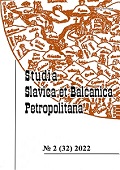Теория «Москва - Третий Рим»: Тексты и контексты
The theory of Moscow as the Third Rome: Texts and contexts
Author(s): Mikhail Vladimirovich Dmitriev, Dmitriy Mikhailovich Bulanin, Natalia Sergeevna Gurianova, Aleksey Vladimirovich Sirenov, Andrey Vitalievich KorenevskiySubject(s): Christian Theology and Religion, Philosophy of Religion, Sociology of Culture, Eastern Orthodoxy, Sociology of Religion, History of Religion
Published by: Издательство Исторического факультета СПбГУ
Keywords: Moscow as the Third Rome; Filofei; Byzantium; the New Jerusalem; the New Israel; Holy Rus’; eschatology;
Summary/Abstract: The theory of Moscow as the Third Rome, defined five centuries ago by the monk of the Pskov Eleazar Monastery Filofei, is considered as one of the most identifiable literary images of Russian history. At the same time, there is an incredible dispersion of appraisals and opinions in its perception and comprehension - both among professional historians, philologists and philosophers, and in public discourse. This Commentarii / Статьи concept has been seen and continues to be seen at various epochs and up to the present day as the key to guess a riddle of the Russian national character and the embodiment of Russia’s age-old hostility towards the West, a mystical epiphany about its soteriological mission and the doctrine of the world domination of the emerging empire. Some scholars consider the theory of Moscow as the Third Rome to be a kind of quintessence of «Russianness», others - a reflection of common Christian and pan-European ideological trends; some investigators look at Filofei as a brilliant thinker-innovator, others completely deny him any creative singularity. On this basis, we have invited experts in the history of Russian political thought to answer the following questions: how unique is the theory of Moscow as the Third Rome, and is it exclusively a fruit of the Russian medieval intellectual environment, to what extent can monk Filofei be considered the author of the theory of Moscow as the Third Rome, what is the fundamental novelty of his concept does it mean that Filofei’s theory did not receive a response among his contemporaries, and if so, why, what are the similarities and differences in its understanding by Filofei himself and people of those epochs when receptions of this idea were undertaken - in at the end of the 16th and 17th centuries, in the 19th century, in contemporary times, and etc.
Journal: Петербургские славянские и балканские исследования
- Issue Year: 2023
- Issue No: 2 (34)
- Page Range: 67-98
- Page Count: 32
- Language: Russian

